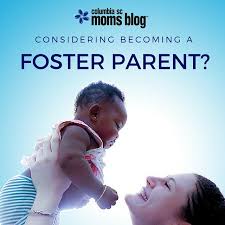In this article, we discussed the meaning foster parenting, the qualities, the types, we talked about the benefits, the pos and cons and how it works
Definition
Foster parenting is a system where a child is temporarily cared for by a state-certified adult, or family member, who is not the child’s biological parent. The goal of the care is to provide a safe and nurturing environment for children who have been removed from their home due to abuse, neglect, or other safety concerns.
Types of Foster Parenting
Respite care: Provides temporary relief for foster parents, allowing them time off
Emergency care: They are on call to accept short-term placements when needed
Kinship care: Family members, such as grandparents, aunts, and uncles, care for children
Therapeutic care: They receive special training and support to care for children with higher social, behavioral, and mental health needs
Foster-to-adopt care: They intend to adopt the child they are caring for
Qualities of foster parents
Open-minded
Loving and accepting
Honest and fair
Calm
Patient and understanding
Flexible
Life skills and experience
Foster parenting can be rewarding and beneficial for both the children and the foster parents.
Benefits for children
Stability and safety: children often have experienced trauma and challenges early in life. Providing a safe and stable environment can help them thrive and contribute to society.
Healthy family dynamic: This children deserve to live in a healthy family dynamic and have a normal life.
Support: care can provide essential support to children and their families.
Benefits for foster parents
Making a difference
This can make a difference in the lives of children who need care and attention.
Helping families
This care can help families stay together by providing support to parents.
What are the advantages and disadvantages of fostering?
The Pros and Cons of Foster Care Adoption
It’s A Great Way to Build a Family.
The Process is Affordable.
It is Emotionally Fulfilling.
Parenting a Child Comes with Unique Challenges.
Foster Care is Geared Toward Older Children.
Not Everyone Understands the Adoption.
How it works
- Screening
Prospective undergo a thorough screening process, including background checks, home inspections, and interviews.
- Training
They receive specialized training to help them care for children who may have experienced trauma or neglect.
- Placement
A child welfare agency places a child in the home of an approved family member.
Conclusion
Foster Parenting is a person temporarily serving as a parent for a child who has lost or been removed from a parent’s care and who is not the person’s own biological child. specifically, US: such a person who has been trained and approved by a government or social-service agency.

